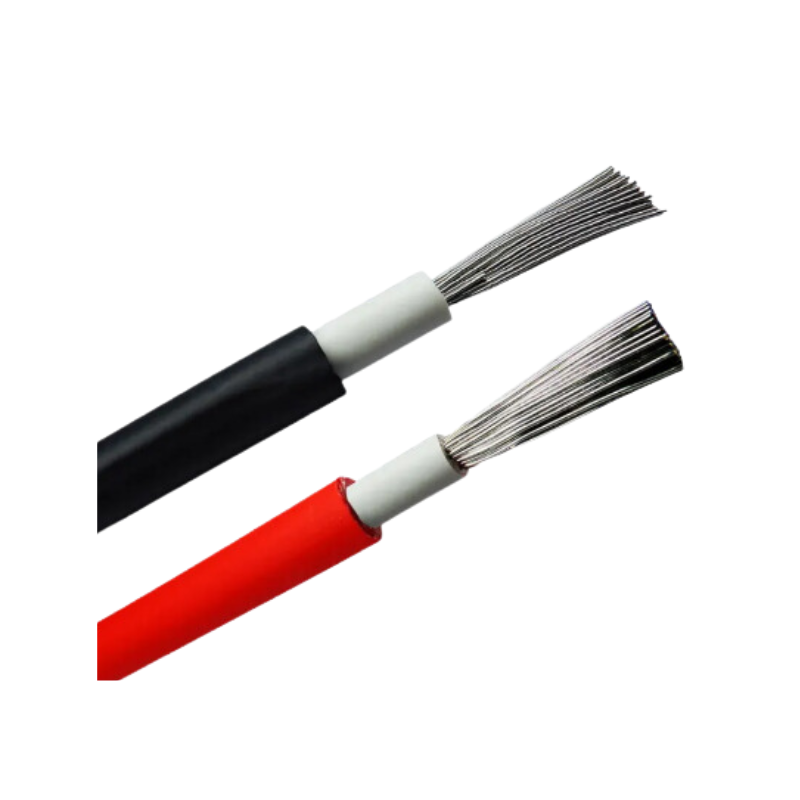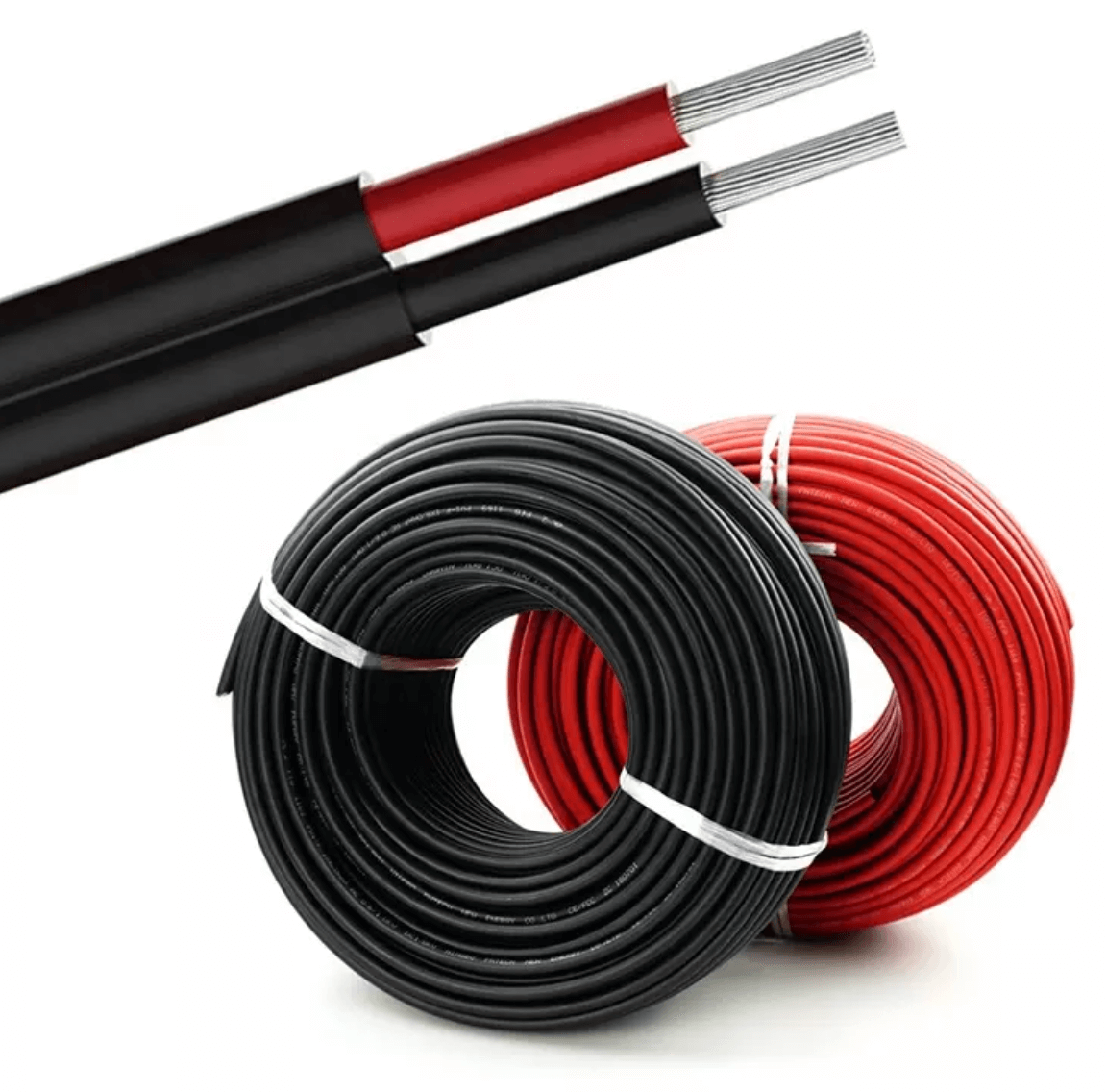Specifications:
- Conductor: Typically made of tinned copper or aluminum, offering excellent conductivity and resistance to corrosion.
- Insulation: Solar cables feature a durable insulation layer, often made of cross-linked polyethylene (XLPE) or ethylene propylene rubber (EPR), providing electrical insulation and protection against environmental factors.
- Sheath: The outer sheath, commonly made of thermoplastic materials like polyvinyl chloride (PVC) or halogen-free compounds, protects the cable from UV radiation, abrasion, and harsh weather conditions.
- Temperature Rating: Solar cables are designed to withstand a wide range of temperatures, ensuring performance in both extreme cold and hot environments.
- UV Resistance: Solar cables are UV-resistant to prevent degradation caused by prolonged exposure to sunlight, enhancing their durability and lifespan.
- Flame Resistance: Some solar cables are flame-retardant, adding an extra layer of safety in case of unexpected events.
Applications:
- Photovoltaic Systems: Solar cables are essential components in photovoltaic systems, connecting solar panels to inverters and charge controllers, facilitating the flow of generated DC power.



Reviews
There are no reviews yet.